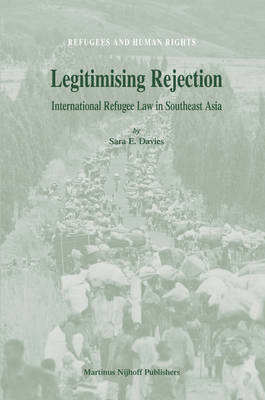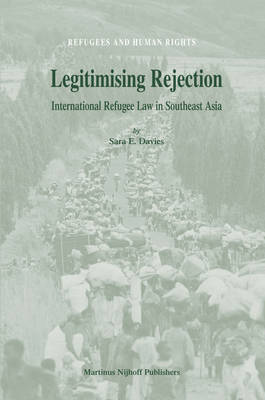
- Afhalen na 1 uur in een winkel met voorraad
- Gratis thuislevering in België vanaf € 30
- Ruim aanbod met 7 miljoen producten
- Afhalen na 1 uur in een winkel met voorraad
- Gratis thuislevering in België vanaf € 30
- Ruim aanbod met 7 miljoen producten
Zoeken
€ 248,95
+ 497 punten
Omschrijving
The 1951 Convention Relating to the Status of Refugees and the 1967 Protocol Relating to the Status of Refugees are the two primary international legal instruments that states use to process asylum seekers' claim to refugee status. However, in Southeast Asia only two states have acceded to these instruments. This is seemingly paradoxical for a region that has been host to a large number of asylum seekers who, as a result, are forced to live as 'illegal migrants'. This book examines the region's continued rejection of international refugee law through extensive archival analysis and argues that this rejection was shaped by the region's response to its largest refugee crisis in the post-1945 era: the Indochinese refugee crisis from 1975 to 1996. The result is a seminal study into Southeast Asian's relationship with international refugee law and the impact that this has had on states surrounding the region, the UNHCR and the asylum seekers themselves.
Specificaties
Betrokkenen
- Auteur(s):
- Uitgeverij:
Inhoud
- Aantal bladzijden:
- 288
- Taal:
- Engels
- Reeks:
- Reeksnummer:
- nr. 13
Eigenschappen
- Productcode (EAN):
- 9789004163515
- Verschijningsdatum:
- 26/11/2007
- Uitvoering:
- Hardcover
- Formaat:
- Genaaid
- Afmetingen:
- 165 mm x 244 mm
- Gewicht:
- 635 g

Alleen bij Standaard Boekhandel
+ 497 punten op je klantenkaart van Standaard Boekhandel
Beoordelingen
We publiceren alleen reviews die voldoen aan de voorwaarden voor reviews. Bekijk onze voorwaarden voor reviews.








